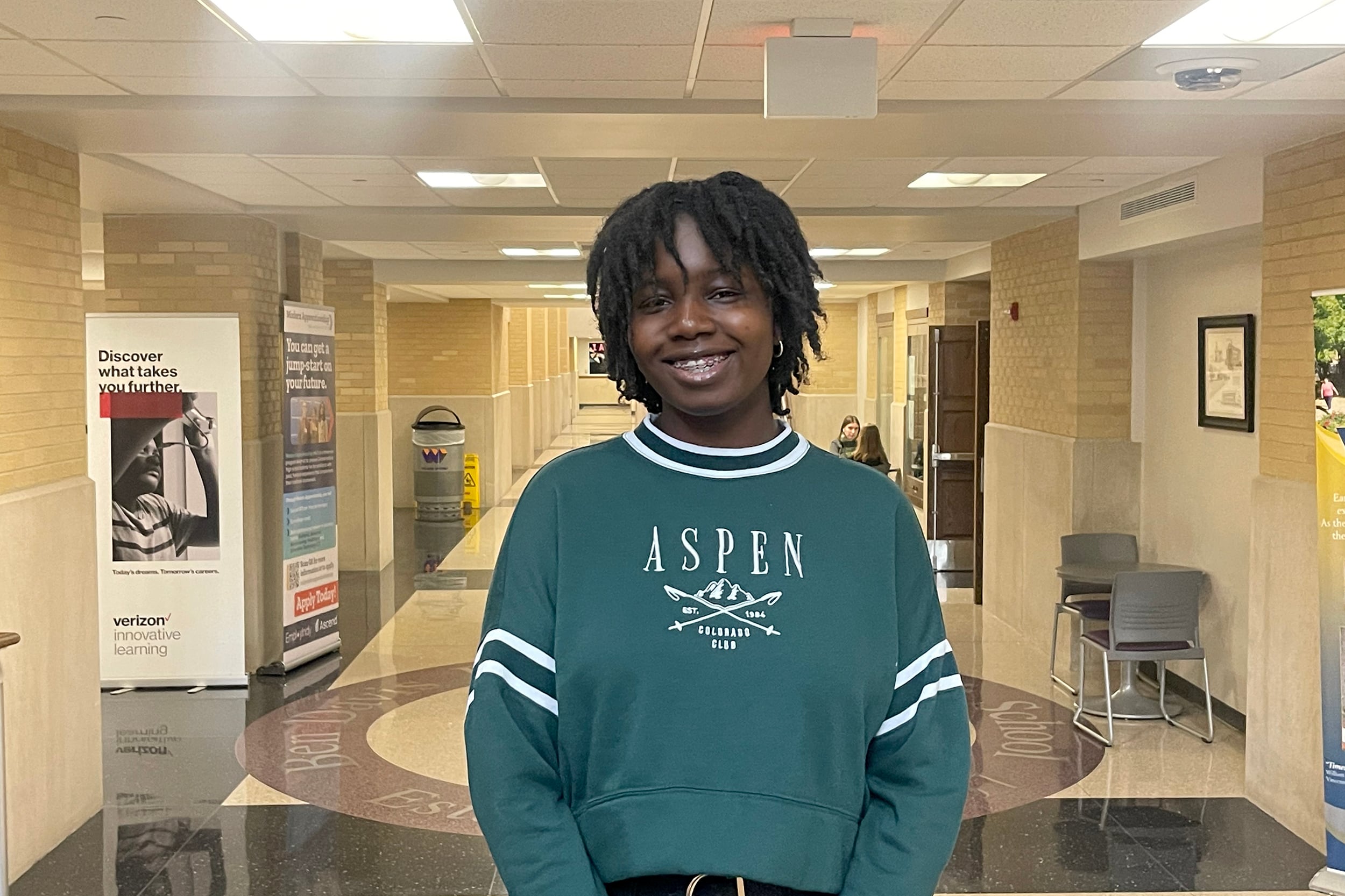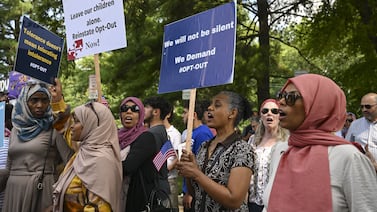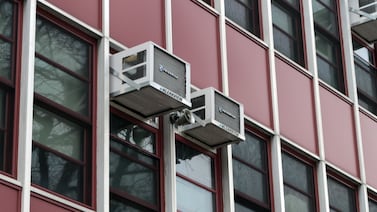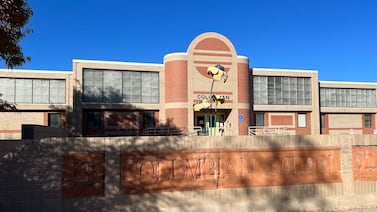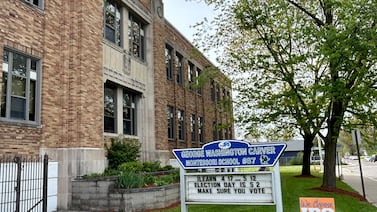Sign up for Chalkbeat Indiana’s free daily newsletter to keep up with Indianapolis Public Schools, Marion County’s township districts, and statewide education news.
This article was originally published by WFYI.
More than a decade ago, only a quarter of Marion County public high school graduates earned college credit. Today, over half of all graduates earn dual credits from Indiana public colleges during their high school years.
The growing popularity of dual credit comes as the price tag of a secondary degree is questioned by debt-averse students, and Indiana’s college-going rate is stuck at the lowest point in a generation.
In Indianapolis, the number of high schoolers going directly to college after graduation fell to about 47 percent in 2021, according to the most recent state data.
Before the COVID-19 pandemic, more students than ever were choosing to earn several types of advanced credit that count toward their graduation and can not only streamline the transition to higher education but cut the bill. Nearly 63 percent of Indiana high schoolers who graduated in 2021 had some type of college credit, a slight dip from the previous year.
In the next four years, state education leaders want to ensure that every Indiana high school provides students the opportunity to earn 30 core college credits, covering essential subjects like English composition, introductory biology, and chemistry. That’s called the Indiana College Core — a certificate earned by completing a set of coursework that can be transferred between all Indiana public colleges and universities and some private ones. Today more than 220 high schools offer it.
Proponents of College Core say it’s working. Over 1,800 students from the class of 2021 graduated with the Indiana College Core, and 90 percent of those students went on to attend college.
Those students could also save on the price of a degree. The Indiana Commission for Higher Education estimates the average cost for a year at a state public college at $22,000.
Students can still take classes for transferable college credit that work towards earning the Indiana College Core without taking all 30 credits needed to earn the certificate.
Michael Hansen with the Brookings Institution says many people are rethinking the purpose of college credit — including how it could be a pathway to enrolling in and completing college.
“I think, for many students, it does show them that maybe college isn’t that challenging, after all,” Hansen said. “I think some students just sort of tell a story about their academic ability during school, and they just feel like college is not for me, and so I’m not even going to try.”
High schools in Indianapolis provide various dual credit programs, with some large traditional schools like Crispus Attucks High School in Indianapolis Public Schools and Lawrence North in Lawrence Township, reporting around 68 percent of graduates earning credits, according to most recent state data.
Here’s how two Indianapolis high schools provide programs for students to earn college credits and, for some, even a chance at an associate’s degree.
Earning credit on a college campus
Rhymz Johnson is a junior at GEO Next Generation High School. He’s been at GEO since he was a freshman. He arrives at the school in the Meadows northeast side neighborhood every weekday morning around 8:30 a.m. A little bit later, he gets on a bus.
Johnson and two other classmates are headed a few miles to Ivy Tech Community College. It’s the first day of a new term in October.

Johnson, 17, said he feels more like a college student than a high schooler. This semester, he only has one class at the charter high school. The rest of his classes are at Ivy Tech, like the design technology class today.
“Every year since freshman year, I’ve basically had more college classes than high school classes,” he said about the Ivy Tech courses that also satisfy his graduation requirements.
Kevin Teasley, the founder of GEO Academies, said getting students on campus to take classes prepares them for the experience of navigating and learning at college.
“So they walk away with not only a bunch of credits, saving themselves and their family a bunch of money, but they walk away with a lot of experience,” Teasley said. “That’s the key. So if they get an associate’s degree, fantastic. But what we really want them to get is that life experience of going off to college.”
Teasley opened a Gary charter school in 2005. The goal was initially to thwart the high dropout rate in the Northwest region. What he found was a way to connect students with post-grad opportunities.
Now two GEO schools in Gary offer dual credit programs at local colleges. At Gary Middle College, aimed at non-traditional students, nearly 80 percent of graduates reported employment or college enrollment a year after graduation in 2020, according to the most recent data available.
The GEO Next Generation High School Indianapolis opened in 2020 and it offers the Indiana College Core. About 180 students are enrolled at the 7-12 grade school, according to state data. In 2022, 85 percent of students graduated.
“We’re in the business of dropping all barriers,” Teasley said. “We want our students to succeed. So if we have to provide transportation we do. We do pay for the tuition. We do buy the textbooks. We do provide academic and social supports. It’s a complete approach.”
The cost per credit hour for part-time students at Ivy Tech is $170.
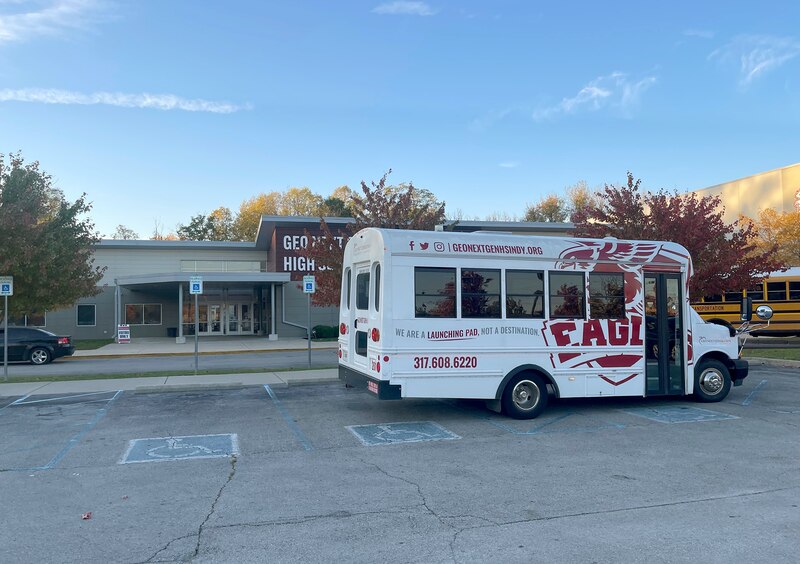
For Johnson, the experience at GEO Academy led him to reconsider a plan to take off time after high school.
“I think I’ll just go ahead and stick to it and just take another year at Ivy Tech, at least to try to get my associate’s degree,” he said.
Now, Johnson is considering transferring to a four year university after getting his associates to major in engineering.
College classes at your high school
Ben Davis University is a three-story building just outside the I-465 loop west of downtown. From the outside, it appears to be a traditional high school but is a partnership between the Metropolitan School District of Wayne Township and the public Vincennes University.
The curriculum is designed for students to earn a diploma and associate’s degree to ease the path to a four-year college. Students take classes to complete one of four degrees and career paths: liberal arts, business management, information technology, and health careers.
The school district covers all the costs.
Gift Akintomide is a junior who picked IT as her focus. She said the smaller, more intimate educational environment at BDU led to her choosing the school over other options. About 390 students are enrolled at the 10-12 grade school, according to state data.
“There’s a lot fewer people [at BDU] than at other high schools. So you feel like you’re getting a tailored education and you have a more personal relationship with your teachers and your peers,” said Akintomide. “But I will say that the early college did draw me in as well. There are opportunities to grow from it.”
BDU students take college classes every other day from a Vincennes University adjunct professor. This semester, Akintomide is taking an advanced computer science class.
She chose IT because it’s a growing field and the skills she’s learning now will be transferable to whichever career path she lands on.
Vincennes counselors are also in the building to help students stay on track for their degree completion. Akintomide says she learned that if you collaborate with teachers to understand the college coursework, “you will excel.”
In 2022, 100 percent of students graduated. In 2021, nearly 95 percent of graduates reported they were employed or enrolled in college after graduating a year earlier.
Wayne Township offers other dual credit options outside of Ben Davis University. The Early College Career Center at Ben Davis High School offers a program for students to earn their diploma and associate degree in pharmacy technology, culinary arts, or precision machining.
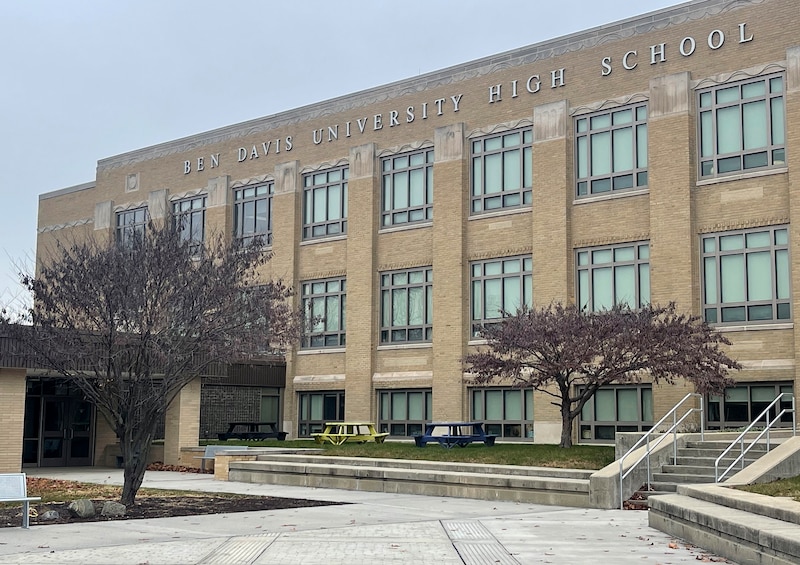
“Wayne Township has always had pathway options for students so that they can individualize what they want to do during high school and what they want to do after high school,” said Rebecca Daugherty-Saunders, the district’s Director of College and Career Readiness. “We definitely have seen a growing trend of interest in career certification programs. And so we’re adapting to meet the needs of our students.”
The Area 31 Career Center, also based at Ben Davis High School, offers credentials in welding, cosmetology, and supply chain management. Students get school credit for hands-on work experience.
Akintomide, the junior at Ben Davis University, hasn’t nailed down exactly what she wants to do for her career but wants to go into the medical field. She is considering a major in bioengineering on a pre-med track and then continuing to medical school.
“I think it gave me an idea of what college is. I may not be like physically in an actual college. but it does let me know how the structure works,” Akintomide said about the school. “I also get to talk to the professors, and they let me know how it is at Vincennes University.”
Contact WFYI Marion County education reporter Sydney Dauphinais at sdauphinais@wfyi.org.

